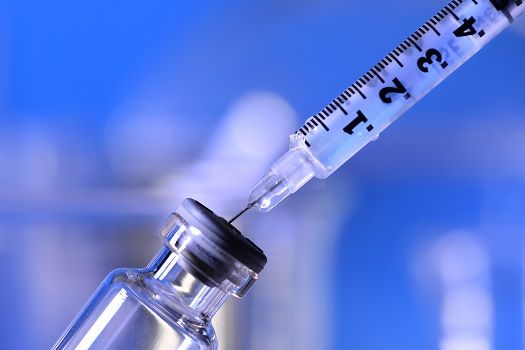Article
Heplisav-B Continues to Jump FDA Hurdles
Author(s):
The potential Hepatitis B adult vaccine has had a half-decade of rebuff to its drug application.

Thursday, August 10, would have been the decision date for Heplisav-B (Hepatitis B vaccine, recombinant), the potential Hepatitis B virus (HBV) adult vaccine commercially owned by Dynavax Technologies.
The treatment’s New Drug Application (NDA) was scheduled for an August 10 ruling by the US Food and Drug Administration (FDA). But on August 3, Dynavax announced the FDA was requesting more post-marketing study information for the vaccine, delaying the decision for up to 3 months.
Though Heplisav-B received received support from the FDA’s Vaccines and Related Biological Products Advisory Committee (VRBPAC) in the form of a 12-1 vote to approve the vaccine’s licensure safety data in late July, the administration indicated feedback from VRBPAC led to their understanding that “more time is required to finalize key details of post-marketing study,” according to a Dynavax press release.
A briefing document of the advisory meeting additionally called clinical trial data that indicated an imbalance in adverse cardiac events “unexpected” for the vaccine. Heplisav-B also reported more deaths from its trial patients (34) versus comparable market HBV vaccines (8), with a majority of the patients having had “significant pre-existing conditions, comorbidities, or contributory social circumstances.”
This is far from the first hurdle Heplisav-B has been given in its track to the market. Since submitting its Biologic License Application (BLA) in April 2012, Dynavax has undergone 2 VRBPAC advisory meetings. The first — in November 2012 — returned a 13-1 vote to approve Heplisav-B’s data for demonstrating immunogenicity.
However, the committee also ruled there was insufficient data to support the vaccine’s safety.
The FDA then submitted a Complete Response Letter (CRL) to Dynavax in February 2013, stating the BLA’s data needed further safety evaluation for its indicated 18 to 70-year age group in the vaccine's phase III trial results.
A second CRL to Dynavax in November 2016 requested clarification on the vaccine’s specific adverse events of special interest (AESIs), as well as on new analyses of safety data base integrated across studies’ different time periods and other particular details.
The data these clarifications are called for are multiple clinical phase III trials of Heplisav-B, in which the investigational vaccine’s safety was studied on more than 14,000 participants.
But more studies are anticipated. Eddie Gray, chief executive officer of Dynavax, said in a statement that the company would work with third-party providers to develop an “appropriate study” that addressed the comments of the VRBPAC in their third and most recent advisory meeting.
For all the red tape in its way, Heplisav-B has caught attention for its market potential. The twice-a-month injection vaccine is advertised as a HBV surface antigen-Receptor 9 agonist combinant drug that enhances immune response in patients. In phase III trials, adult patients showed greater, easier protection in fewer doses of Heplisav-B versus currently marketed vaccines.
Dynavax Technologies’ shares raised 72% on the Monday after the VRBPAC’s safety approval vote in late July. The interest in the vaccine — beyond its lessened dosage and improved efficacy — comes from a mindset of necessity.
Tom Nealon, chief executive officer of the American Liver Foundation, explained the stakes of HBV — one of the most common liver infections in US patients that could lead to hepatocellular carcinoma and the need for liver transplants.
“The potential FDA approval of the Hepsilav-B vaccine would provide another option to help protect against the spread of HBV,” Nealon said. “Access to effective vaccines can help protect millions of Americans from contracting this disease, which can ultimately lead to fewer cases of hepatocellular carcinoma and reduce the need for liver transplants.”
Though the drug has spent a half-decade in regulatory limbo, Dynavax has remained confident. The company stated its most recent delay does not deter plans to commercially launch Heplisav-B in early 2018.
“We plan to respond to the request for additional information expeditiously,” Gray said. “We look forward to bringing this important vaccine to market to support the elimination of hepatitis B infection as a public health problem."
Dynavax Technology press releases were made available on their company website.
Related Coverage
HCV Drug Receives Australian Subsidy as Nation Aims for Zero Infections
PCPs Can Effectively Manage HCV Treatment with DAAs
Opioid Threat Grows to National Emergency, Study Shows Mortality Rates Are Even Worse





